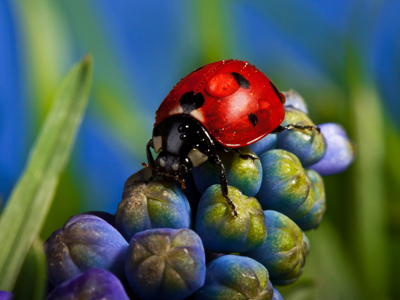
Intensive Farming and the Environment
The effect that mankind's activities have had on the environment form a major part of GCSE Geography. This quiz looks at intensive farming - the negative impact it has had on the environment and some possible alternative agricultural practices.
Farming is often viewed as a simple, rural pursuit but, with an increase in modern methods, farming has become an intensive system designed to get the maximum yield out of the minimum land area. Whist we tend to think of intensification as being a modern problem, we have been improving and developing farming practices for tens of thousands of years, ever since hunter gathers began tending to wild plants that they needed as food.
Intensive farming involves the use of fertilisers and pesticides, growing high yield crops, growing crops all year round and keeping animals indoors and in small spaces to limit their movement. This allows a higher yield in crops and meat production, but leads to environmental impacts that may not be clear immediately.
Ready for more?
not all...
quizzers. Try to win a coveted spot on our Hall of Fame Page.







